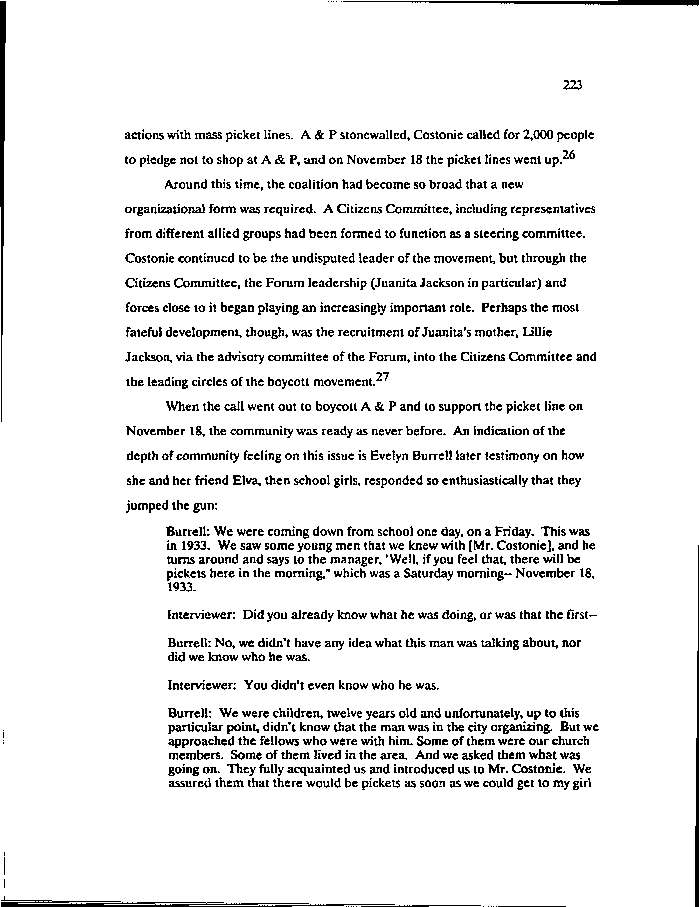|
223
actions with mass picket lines. A & P stonewalled, Costonie called for 2,000 people
to pledge not to shop at A & P, and on November 18 the picket lines went up.
Around this time, the coalition had become so broad that a new
organizational form was required. A Citizens Committee, including representatives
from different allied groups had been formed to function as a steering committee.
Costonie continued to be the undisputed leader of the movement, but through the
Citizens Committee, the Forum leadership (Juanita Jackson in particular) and
forces close to it began playing an increasingly important role. Perhaps the most
fateful development, though, was the recruitment of Juanita's mother, Lillie
Jackson, via the advisory committee of the Forum, into the Citizens Committee and
*?7
the leading circles of the boycott movement.
When the call went out to boycott A & P and to support the picket line on
November 18, the community was ready as never before. An indication of the
depth of community feeling on this issue is Evelyn Burrell later testimony on how
she and her friend Elva, then school girls, responded so enthusiastically that they
jumped the gun:
Burrell: We were coming down from school one day, on a Friday. This was
in 1933. We saw some young men that we knew with [Mr. Costonie], and he
turns around and says to the manager, 'Well, if you feel that, there will be
pickets here in the morning," which was a Saturday morning- November 18,
1933.
Interviewer: Did you already know what he was doing, or was that the first-
Burrell: No, we didn't have any idea what this man was talking about, nor
did we know who he was.
Interviewer: You didn't even know who he was.
Burrell: We were children, twelve years old and unfortunately, up to this
particular point, didn't know that the man was in the city organizing. But we
approached the fellows who were with him. Some of them were our church
members. Some of them lived in the area. And we asked them what was
going on. They fully acquainted us and introduced us to Mr. Costonie. We
assured them that there would be pickets as soon as we could get to my girl
|

